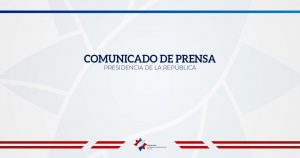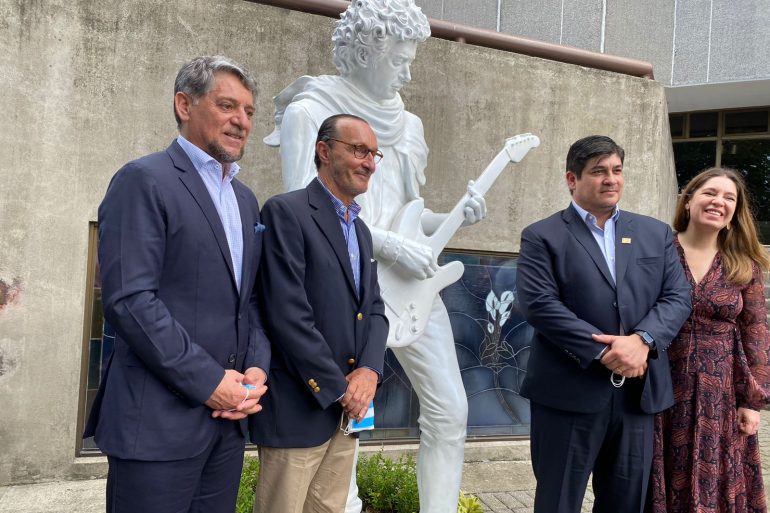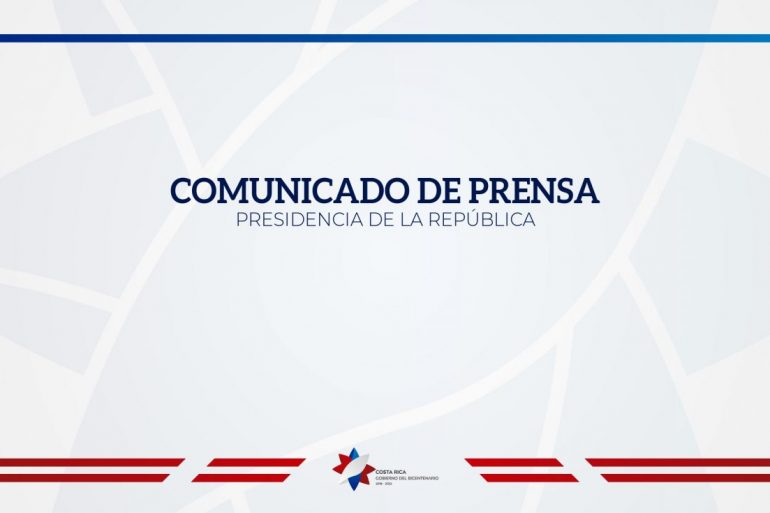- Under the ‘REDD+ Results-based Payments’ modality, the allocation of non-reimbursable resources recognizes the country’s successful achievements in reducing greenhouse gas emissions.
- Funds will go to thousands of landowners and indigenous communities that protect forests, and to reinforce forest fire prevention measures in rural areas.
- «The financial support in which this international recognition is translated, will allow us to strengthen two key programs: The Payment for Environmental Services, which benefits 24 thousand people, and the Forest Fire Control», explained the Minister of Environment and Energy.
- The President of the Republic reiterated the commitment to continue working “so that the protection of the environment becomes a source of wealth that improves the quality of life of people, benefits the generation of jobs and leads us to the goal of being a decarbonized country in 2050″.
San José. Costa Rica became the first Central American country to receive non-reimbursable funds from the Green Climate Fund (GCF), due to its successful results in climate matters by reducing greenhouse gas emissions (GHG), associated with deforestation in the 2014-2015 period.
The Board of Directors of the Green Climate Fund approved this Tuesday $54.1 million in non-reimbursable funds that it will give to Costa Rica under the modality of «payment for results», within the framework of climate financing of the United Nations Framework Convention on Climate Change (UNFCCC).
This modality recognizes the efforts made by countries like Costa Rica to respond to the climate crisis and provides funds so that they can continue successful public policies.
Costa Rica had technical support from the United Nations Development Program (UNDP) and the REDD+ Secretariat to develop and present the proposal to the GCF, which asked to recognize 14.7 million metric tons of carbon dioxide captured in that period through the country’s forests.
The $54.1 million from this fund will directly benefit thousands of Costa Ricans through three destinations, to be executed over the next five years (2021-2026) through three programs of the Ministry of Environment and Energy (MINAE):
- Strengthen the existing Payment for Environmental Services (PES) scheme. In the case of women beneficiaries, recent modifications have been made to the PES scheme to scale up women´s benefits.
- Expand Payment of Environmental Services schemes in indigenous territories.
- Strengthen forest fire prevention measures in rural communities through the National System of Conservation Areas (SINAC).
“These funds come at a critical time for Costa Rica, given that the economic crisis has put two of our key environmental programs at serious financial risk: The Forest Fire Prevention and Control Program and the Payment for Environmental Services that benefits 24 thousand people directly each year”, commented the Minister of Environment and Energy, Andrea Meza.
She added that «the financial support in which this important international recognition is translated will allow us to strengthen both programs and benefit many families in our country.»
For his part, the President of the Republic, Carlos Alvarado, reiterated Costa Rica’s commitment to continue working hard «so that the protection of the environment becomes a source of wealth that improves the quality of life of the people of our country, it benefits the generation of jobs in the communities and that it takes us at a good pace towards our goal of being a decarbonized country by 2050.
International leadership. As a world leader in sustainability, Costa Rica has stood out for implementing for more than 20 years, a Payment for Environmental Services (PES) to reverse deforestation executed by the National Forestry Financing Fund (FONAFIFO), and for combating forest fires led by the National System of Conservation Areas of the Ministry of Environment and Energy (MINAE).
After decades of continuous forest loss, Costa Rica managed to halt and reverse the rate of deforestation in the 1980s, in part thanks to the support of successful programs such as the PSE. Today, thanks to the implementation of public policies and actions aimed at recognizing the importance of forests, it has a forest coverage of about 52%, protects more than a quarter of its territory and is home to 6% of the biodiversity of the planet.
Currently, most of the PES schemes in Costa Rica are financed through the tax on the consumption of hydrocarbons. However, the COVID-19 pandemic generated a reduction in government tax revenue, which jeopardizes the operation of the Program.
Costa Rica reported at the end of 2019 its Second Biannual Update Report, an official report to the United Nations Framework Convention on Climate Change in which it details its efforts and achievements in climate matters based on the emissions of 2015. In that report, Costa Rica documented 14.7 million metric tons of carbon dioxide captured in that period by the country’s forests.
“Once again, Costa Rica shows the world that environmental sustainability is economically viable and socially inclusive. It fills us with joy to be able to support the mobilization of important resources and thus move forward on the path of decoupling the financing of environmental protection from those fiscal revenues that come from carbon consumption” said José Vicente Troya Rodríguez, UNDP Resident Representative.






